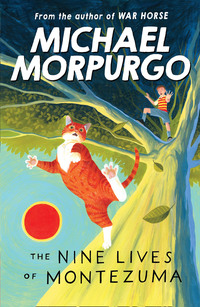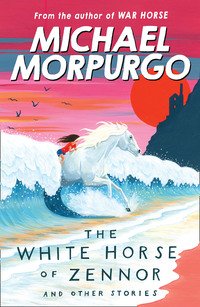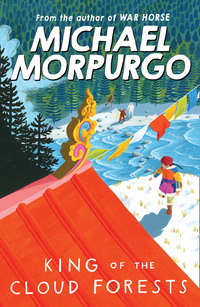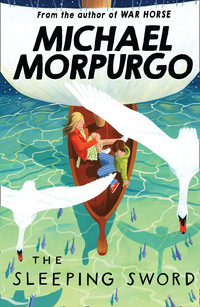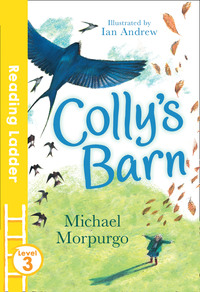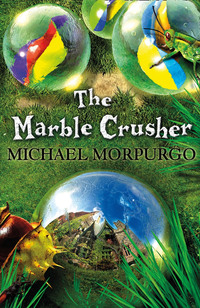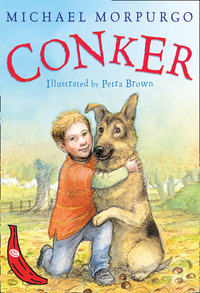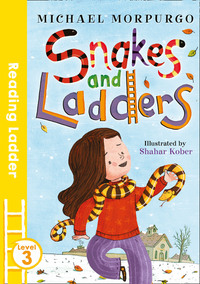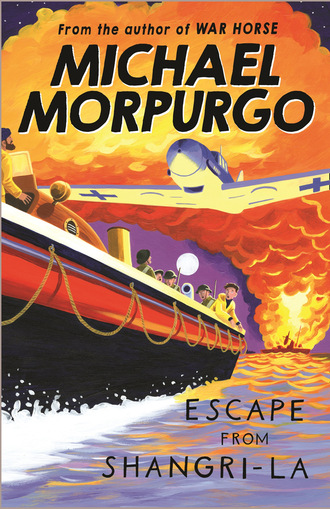
Полная версия
Escape from Shangri-La

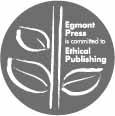
EGMONT PRESS: ETHICAL PUBLISHING
Egmont Press is about turning writers into successful authors and children into passionate readers – producing books that enrich and entertain. As a responsible children’s publisher, we go even further, considering the world in which our consumers are growing up.
Safety First Naturally, all of our books meet legal safety requirements. But we go further than this; every book with play value is tested to the highest standards – if it fails, it’s back to the drawing-board.
Made Fairly We are working to ensure that the workers involved in our supply chain – the people that make our books – are treated with fairness and respect.
Responsible Forestry We are committed to ensuring all our papers come from environmentally and socially responsible forest sources.
For more information, please visit our website at www.egmont.co.uk/ethical

Egmont is passionate about helping to preserve the world’s remaining ancient forests. We only use paper from legal and sustainable forest sources, so we know where every single tree comes from that goes into every paper that makes up every book.
This book is made from paper certified by the Forestry Stewardship Council (FSC), an organisation dedicated to promoting responsible management of forest resources. For more information on the FSC, please visit www.fsc.org. To learn more about Egmont’s sustainable paper policy, please visit www.egmont.co.uk/ethical.

Also by Michael Morpurgo
Arthur: High King of Britain
Friend or Foe
The Ghost of Grania O’Malley
Kensuke’s Kingdom
King of the Cloud Forests
Little Foxes
Long Way Home
Mr Nobody’s Eyes
My Friend Walter
The Nine Lives of Montezuma
The Sandman and the Turtles
The Sleeping Sword
Twist of Gold
Waiting for Anya
War Horse
The War of Jenkins’ Ear
The White Horse of Zennor
The Wreck of Zanzibar
Why the Whales Came
For Younger Readers
Conker
Mairi’s Mermaid
The Best Christmas Present in the World
The Marble Crusher
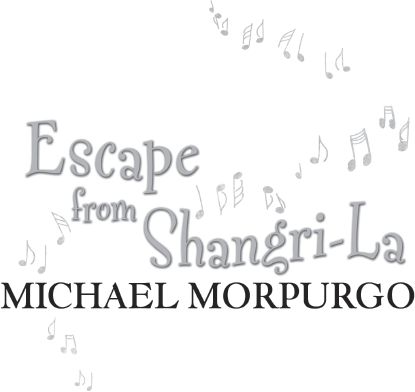


For Conrad and Anne
CONTENTS
1 A bit of old goat
2 Water music
3 Barnardo’s boys
4 The prodigal father
5 Nowhere man
6 And all shall be well
7 Shangri-La
8 The Lucie Alice
9 Gone missing
10 Dunkirk
11 The great escape
12 Earlie in the morning
13 Message to my father
1 A BIT OF AN OLD GOAT
I WAS KNEELING UP AGAINST THE BACK OF THE sofa looking out of the window. Summer holidays and raining, raining streams. ‘He’s been there all day,’ I said.
‘Who has?’ My mother was still doing the ironing. ‘I don’t know why,’ she went on, ‘but I love ironing. Therapeutic, restorative, satisfying. Not like teaching at all. Teaching’s definitely not therapeutic.’ She talked a lot about teaching, even in the holidays.
‘That man. He just stands there. He just stands there staring at us.’
‘It’s a free world, isn’t it?’
The old man was standing on the opposite side of the road outside Mrs Martin’s house underneath the lamppost. Sometimes he’d be leaning up against it, and sometimes he’d be just standing there, shoulders hunched, his hands deep in his pockets. But always he’d be looking, looking right at me. He was wearing a blue donkey jacket – or perhaps it was a sailor’s jacket, I couldn’t tell – the collar turned up against the rain. His hair was long, long and white, and it seemed to be tied up in a ponytail behind him. He looked like some ancient Viking warlord.
‘Come and see,’ I said. ‘He’s strange, really strange.’ But she never even looked up. How anyone could be so obsessively absorbed in ironing was beyond me. She was patting the shirt she’d finished, sadly, her head on one side, just as if she was saying goodbye to an old dog. I turned to the window again.
‘What’s he up to? He must be soaked. Mum!’ At last she came over. She was kneeling beside me on the sofa now and smelling all freshly ironed herself. ‘All day, he’s been there all day, ever since breakfast. Honest.’
‘All that hair,’ she tutted. ‘He looks a bit of a tramp if you ask me, a bit of an old goat.’ And she wrinkled up her nose in disapproval, as if she could smell him, even from this far away.
‘And what’s wrong with tramps, then?’ I said. ‘I thought you said it was a free world.’
‘Free-ish, Cessie dear, only free-ish.’ And she leant across me and closed the curtains. ‘There, now he can look at the back of our William Morris lily pattern to his heart’s content, and we don’t have to look at him any more, do we?’ She smiled her ever so knowing smile at me. ‘Do you think I was born yesterday, Cessie Stevens? Do you think I don’t know what this is all about? It’s the “p” word, isn’t it? Pro . . . cras . . . tin . . . ation.’ She was right of course. She enunciated it excruciatingly slowly, deliberately teasing the word out for greatest effect. She was expert at it. My mother wasn’t a teacher for nothing. ‘Violin practice, Cessie. First you said you’d do it this morning, then you were going to do it this afternoon. And now it’s already this evening and you still haven’t done it, have you?’
She was off the sofa now and crouching down in front of me, looking into my face, her hands on mine. ‘Come on. Before your dad gets home. You know how it upsets him when you don’t practise. Be an angel.’
‘I am not an angel,’ I said firmly. ‘And I don’t want to be an angel either.’ I was out of the room and up the stairs before she could say another word.
I was ambivalent about my mother. I was closer to her than anyone else in this world. She had always been my only confidant, my most trusted friend. Whatever I did, she would always defend me to the hilt. I’d overhear her talking about me. ‘She’s just going through that awkward prickly stage,’ she’d explain. ‘Half girl, half woman. Not the one thing, nor the other. She’ll come out of it.’ But sometimes she just couldn’t stop playing teacher. Worst of all, she would use my father as a weapon against me. In fact, my father was never really upset when I didn’t practise my violin, but I knew that he would be disappointed. And I hated to disappoint him – she knew that too.
Whenever he could, whenever he was home, my father would come up to my room to hear me play. He’d sit back in my chair, put his hands behind his head and close his eyes. When I played well – and I usually did when he was there – he would give me a huge bear hug afterwards, and say something like, ‘Eat your heart out, Yehudi.’ But just recently, ever since we moved house, my father hadn’t been able to hear me that much. His new job at the radio station kept him busier than ever – he had two shows a day and some at weekends too. I’d listen in from time to time just to hear his voice, but it was never the same. He was never my father on the radio.
I was ambivalent about my violin too. The truth was that I loved it with a passion. I loved the secrecy of its hidden life shut away in its green baize case, the soft snuggle of the pad under my chin, the smoothness of the horsehair when I drew my bow across the inside of my wrist to test its tautness. I loved playing my violin too, but I had always hated practising, and in particular I hated being told to practise. Once I could forget that I was practising, once I could lose myself in the music, then I could play quite happily for hours on end and not even notice the passing of time.
I was just beginning to enjoy it, just beginning to feel at one with my violin. I was playing Handel’s Largo so well I could feel my skin pricking with pleasure all down my arms. But then the doorbell rang. The magic was broken. I was immediately back to hateful practising. The bell rang again. Any excuse to avoid practising was good enough. I put the violin down on my bed, and my bow too, and went to the top of the stairs to see who it was. I heard the front door opening. There was a shadow down in the hallway, and my mother was standing beside it, motionless.
‘Who is it?’ I said, as I came down the stairs.
The shadow moved suddenly into the light of the hallway and became the old man from across the road. He was standing there, dripping. ‘I’m sorry,’ he said. ‘I don’t want to intrude.’
His face tremored into a smile as he saw me. ‘Cessie?’ He knew my name! ‘You must be Cessie. I know this is going to sound a bit odd, but I’m your grandad. I’m your dad’s dad, so that makes me your grandad, doesn’t it?’ He looked full at my mother now. ‘It’s true, true as I’m standing here. I’m young Arthur’s dad. When I knew him last he was only little, five years old, and that’s near enough fifty years ago. Long time.’ For a moment or two, he didn’t seem to know what else to say. ‘Big ears. Born with big ears, he was, like a baby elephant. That’s why we called him Arthur. You know those Babar books, do you?’ I nodded because I couldn’t speak. ‘I was Babar, if you see what I mean. His mum was Celeste, and so the little fellow, our son, was called Arthur. He didn’t have a trunk of course.’ I smiled at that, and he caught it and tossed it back at me, his eyes suddenly bright.
‘You’d be a bit old for all that now, I suppose. All grown up, I expect.’ He was scrutinising me now. ‘Come to think of it, you look a bit like little Arthur too, except for the ears of course. You’ve got nice ears, nice and neat, like they should be. Not flapping around in the wind like his were. What are you? Thirteen? Fourteen?’
‘Eleven,’ I said. I felt my mother take my hand and hold on to it tightly, so tightly it was hurting me.
‘Seventy-five.’ The old man was pointing to himself. ‘I’m seventy-five. Old as the hills, eh? Do you know what your dad used to call me when he was little? “Popsicle”. “Pops” to start off with. Then it was Popsicle. Don’t know why. It’s what everyone’s always called me ever since – Popsicle, Popsicle Stevens.’
‘You can’t be,’ my mother whispered, pulling me close to her. ‘You can’t be him. Arthur hasn’t got a father.’ The old man seemed suddenly unsteady on his feet. He swayed and staggered forward. Instinctively we both backed away from him. He was dripping from his ears, from his chin, from his fingers too. It was as if his whole body was weeping tears. His hair, I noticed, wasn’t really white at all, but creamy, almost yellow in places. It didn’t look very clean. None of him did.
‘Everyone’s got a father,’ he said, and he was holding out his arms towards us – just like ghosts do, I thought. ‘I’m not a ghost, Cessie.’ We backed further away. Ghosts can read minds. ‘I’m telling you, I’m Popsicle Stevens and I’m Arthur’s father, and I’m alive, alive, oh. I mean ghosts don’t get hungry, do they? And they don’t get fruzzed either.’ He reached out suddenly and caught me by my wrist. ‘Feel that?’ He was as cold as stone, but he was real. He was no ghost. ‘You wouldn’t have a nice cup of tea, would you, just to warm a fellow through?’
My mother stood her ground now, pulling me behind her, clasping my hand even tighter still. ‘How do I know? You could be anyone, couldn’t you? Coming in off the street like that, you could be anyone. How do I know you’re who you say you are?’
The old man took a deep breath before he spoke. ‘Listen, these old grey cells up here’ – he was tapping his temple – ‘they may not be what they once were, but there’s some things you don’t get wrong. If you’ve got an Arthur Stevens living here, and he grew up in a little place called Bradwell-on-Sea – on the Essex coast it is – if he’s your husband, and if he’s your dad, then, unless I’m mistaken – which I don’t think I am – we’re kith and kin, all of us. I just thought I’d look him up, that’s all. I didn’t think it could do any harm – not now, not any more.’
In the silence of the hallway I could almost hear my mother thinking, perhaps because we were thinking the same thing. My father had grown up on the Essex coast. We’d been there. We’d seen the house where he was born. His childhood was a bit of a mystery. He’d been a Barnado’s boy – I knew that much. His mother, my grandmother, had died young – I knew that too – a long time before I was born. As for his father, I’d known little or nothing of him. My father had never spoken of him, not in my hearing anyway. If I had thought about him at all, and I am not sure that I had, then I suppose I had simply presumed he was dead, like my grandmother was.
The old man was unbuttoning his jacket now, and fumbling deep inside. My mother still held me by the hand in a grip of steel. The wallet he took out was stuffed full, like some battered leather sandwich. He opened it up with great care, almost reverently. With shaky fingers he pulled out an old photograph, faded to sepia, torn at the edges and criss-crossed with creases. He gave it to us. A young man looked at me out of the photograph. He was standing in front of a clapperboard house with roses growing up around the windows. Astride his shoulders sat a small boy clutching his hair with both fists. Beside them stood a young woman who was looking up at them adoringly.
‘That’s your grandmother,’ he said, ‘and there’s me with little Arthur, your dad, that is, pulling my hair by the roots. He was always doing that, little rascal. Summer 1950. That was the last summer we were all together.’
‘What was she called?’ My mother was still interrogating him. ‘Arthur’s mother. What was she called?’
The question clearly troubled him. He seemed reluctant to answer, but when he spoke at last he spoke very deliberately. ‘Cecilia,’ he said. ‘She was called Cecilia.’ Then he was looking at me and beaming. ‘Of course. I didn’t think of it till now, Cessie. That’d be after your grandmother, wouldn’t it?’
He was right. He’d been right about everything. I felt a warm shiver creeping up the back of my neck. My grandmother had been called Cecilia, and I had been named after her, I’d always known that. There was a photograph of her on top of the piano in the sitting-room. She was young in the photograph, somehow too young for me to have ever thought of her as a grandmother.
I looked up into his face. The eyes were deep-set and gentle. They were blue. He had blue eyes. My father had blue eyes. I had blue eyes. That was the moment the last doubts vanished. This man had to be my father’s father, my grandfather.
For some time we just stood there and stared at him.
I squeezed my mother’s hand, urging her to do something, say something, anything. She looked down at me. I could see she was still unsure. But I knew he was not lying. I knew what lying was all about. I did it a lot. This man was not doing it. It takes a liar to know a liar.
‘You’d better come in,’ I said.
I broke free of my mother’s grasp, took my grandfather gently by the arm and led him into the warmth of the kitchen.
2 WATER MUSIC
‘I’M AFRAID I’VE GOT A VERY SWEET TOOTH,’ HE said, stirring five heaped teaspoons of sugar into his tea. We sat watching him as he sipped and slurped, both hands holding the mug. He was savouring it. In between sips he set about the plate of chocolate digestive biscuits, dunking every one till it was soggy all through, and devouring one after another with scarcely a pause for breath. He must have been really famished. His face was weathered brown and crinkled and craggy, like the bark of an old oak tree. I’d never seen a face like it. I couldn’t take my eyes off him.
I did all the talking. Someone had to. I can’t stand silences – they make me uncomfortable. He was obviously too intent on his tea and biscuits to say anything at all, and my mother just sat there staring across the kitchen table at him. How many times had she told me not to stare at people? And here she was gawping at him shamelessly. It was as if Quasimodo had dropped in for tea.
I had to think of something sensible to talk about, and I reasoned that he might want to know something about me, about his new-found granddaughter. After all, he had my whole life to catch up on. So I gave him a potted autobiography, heavily selective, just the bits I thought might be interesting: how we’d just moved here six months ago, where I went to school, who my worst enemies were. I told him in particular about Shirley Watson and Mandy Bethel, and about how they’d always baited me at school, because I was new perhaps, or maybe because I kept myself to myself and was never one of the girls. All the while he kept on chomping and slurping, but he was listening too. I could tell he was because he was smiling at all the right places. I’d told him just about everything I could think of, when I remembered my violin.
‘I’m Grade Five now. I started when I was three, didn’t I, Mum? Suzuki method. I do two lessons a week with Madame Poitou – she’s French and she’s a lot better than my old teacher. She says I’ve got a good ear, but I’m a bit lazy. I have to practise every day for forty minutes. Not much good at anything else, except swimming. Butterfly, I’m really good at butterfly. Oh, yes, and I like sailing too. Dad’s got a friend who works at the radio station with him, and he’s got a twenty-six footer called Seaventure. He keeps it down at the marina. We went all the way down the coast, didn’t we, Mum? Dartmouth or somewhere. Bit rough, but it was great.’
‘Nothing like it,’ he said, nodding away. ‘Nothing like the sea. “I must go down to the sea again, to the lonely sea and the sky . . .” you know that poem, do you? Not true, of course. You’re never lonely at sea. It’s people that make you feel lonely, don’t you think? You like poetry, do you? Always liked poems, I have. I’ve got dozens of them up here in my head.’
My mother spoke up suddenly: ‘How did you know where to find us? How did you know?’
‘It was luck, just luck. It wasn’t as if I was looking for him. It just happened. I was at home, a couple of weeks ago, and I had the radio on. Had it on for the weather, matter of fact. I always listen to the weather. I heard him, on that programme he does in the mornings. I didn’t recognise his voice of course, but there was something about how he said what he said that I had to listen to. And then I heard his name. “Arthur Stevens’ Morning Chat”, they called it. I’m not a fool. I knew well enough there was likely to be more than one Arthur Stevens in the world, I knew that. But I just had this feeling, like it was a meant-to-be thing. Do you understand what I’m saying? It was like we were supposed to meet up again after all this time.
‘So, the same afternoon it was, I went and had a look. I walked right in the front door of the radio station. And there he was, larger than life up on the wall, a huge great smiling poster of him. I took one look and, I’m telling you, I didn’t have to read the signature across the bottom. It was him. Same big ears, same cheeky smile, same little Arthur. Just fifty years older, that’s all. Couldn’t mistake him. And then, whilst I was standing there looking up at him, he comes right past me, close enough I could’ve reached out and touched him. And I wanted to, believe me I wanted to; but I couldn’t, I didn’t dare. Then he was gone out of the door and it was too late.’
He swept the biscuit crumbs up into a little pile with his finger, and went on. ‘Anyway, after that I came over all giddy in the head. I get that from time to time. I had to sit down to steady myself, and there was this young lady at the desk who helped me. She was nice too. She brought me a glass of water. I reckon she was a bit worried about me. After a bit, we got talking, her and me. I asked her about Arthur and she told me all about him – and about the two of you as well. She said how good he is to work with, how he cares about what he does. “Never stops,” she said. “Works himself to a frazzle.” She told me about all the shows he does, how they phone in with all their cares and woes, and how he talks to them and makes them feel better about themselves. “You should listen in some time,” she said. So I did. I’ve heard every one of his programmes ever since – never missed. Not once. Plays my kind of music too.’
He was looking at us hard. ‘I know what you’re thinking. You’re thinking I’m maybe a bit crazed in the head, a bit barmy. Well, maybe I am at that. Maybe I shouldn’t have come at all. I’ve got no business being here, I suppose, not really, not after all these years.’ His eyes were welling with tears. ‘It was an agreement, a sort of understanding, between Arthur’s mother and me. Don’t get me wrong. I don’t blame her – I wasn’t much good to her, I know that now. One day she just said she’d had enough. She was leaving and she was taking young Arthur with her. She wanted a fresh start, she said. There was this other man – these things happen. Anyway it wasn’t nasty, nothing like that. It’d be best all round if I stayed out of it, she said, best for the boy. He’d soon get used to a new father. So I said I’d keep away, for the boy’s sake. And that’s what I’ve done. I kept my promise, and it wasn’t easy sometimes, I can tell you. A father always wants to know how his son’s grown up. So I never went looking; but when I heard his name on the radio, well, like I said, I thought it was a meant thing. And here I am. He sounded grand on the radio, just grand.’ He brushed away the tears with the back of his hand. He had massively broad hands, brown and engrained with dirt. ‘It took me two weeks thinking about it, and then a whole day standing out there in the rain before I could bring myself to knock on the door.’
He composed himself again before he went on. He was looking directly at my mother. ‘I haven’t come to bother you, nor him. I promise. I just wanted to see him, see you all, and then I’ll be on my way.’
My mother glanced up at the kitchen clock. ‘Well, I’m afraid he’s not going to be home for quite a while yet. Half an hour at least, maybe longer.’ Then, quite suddenly, she snapped into teacher mode again – positive, confident, organising. ‘All right,’ she said. ‘Cessie, you can go and run a bath.’
‘What?’ Sometimes I just could not understand her at all. Why on earth should I have a bath all of a sudden, and before supper too?
‘Not for you, Cessie, for Mr Stevens.’ She clapped her hands at me. ‘Go on, hop to it. And he’ll need a towel too, from the airing cupboard – the big green one. We can’t have Mr Stevens sitting around in those wet clothes till your father comes home, can we now? He’ll catch his death.’
‘Not Mr Stevens, please. Popsicle. I’m Popsicle,’ my grandfather said quietly. ‘I’d like it very much if you’d call me Popsicle. It’s what everyone calls me. It’s what I’m used to.’


